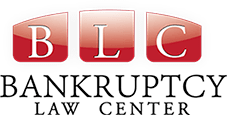Bankruptcy Requires Full Disclosure
Bankruptcy under the federal Bankruptcy Code can be a welcome relief to those suffering from financial pressure that seems to have no relief. There are strong protections available to those seeking protection from bankruptcy requires full disclosure.
For example, once a debtor chooses to file for bankruptcy :
- Debt collectors must stop contacting or attempting a collection of debts;
- All court cases must stay until the bankruptcy has been resolved;
- The debtor, trustee, and court enter into a resolution at the end of the case, dealing with the debts;
- Debt collectors can no longer collect on declared debts.
As you can see, there are strong incentives for those seeking relief from financial pressure to file for bankruptcy. Before a petition is considered, the full extent of disclosure must be examined by the petitioners.
Bankruptcy Disclosure
As one recent case out of a bankruptcy court in California demonstrates, a full and fair accounting is required by all parties to a bankruptcy case. The case, In re Sadek, involved a man seeking bankruptcy protection, but who lost his chance because of neglected procedures and a lack of transparency with the bankruptcy court.
In that case, a Californian trying to file for bankruptcy took a different tack than what is allowed under the law. Under bankruptcy law, once a person files for bankruptcy, he or she must file a schedule with the court listing all of the assets, liabilities, and sources of income pertaining to the debtor. This includes income from any source, debts, titles, and other assets with value. Bankruptcy Attorney San Diego California is the only professional that can help you with your disclosers.
In contrast to what should have been done, the debtor in this case, apparently pursuant to legal counsel, decided that several sources of income and other issues did not need to be disclosed to the court. This included expenses that were paid directly by the debtor’s employer on behalf of the debtor, certain properties in the debtor’s name, and other issues. It is impotant to know how to choose a bankruptcy lawyer.
Motion to Dismiss Bankruptcy
In cases such as these, the trustee is not without recourse when a debtor is less than forthright in a bankruptcy petition. In this case, in response, the trustee of the debtor’s estate moved that the bankruptcy be dismissed, and it was. The court in any bankruptcy case has broad powers to manage a case, and unless all of the rules are followed, will dismiss a petition, or worse. Look for the best bankruptcy lawyer San Diego California for your cases.
Dismissal is just one of the reasons that bankruptcy rules should be followed closely. For example, in some cases, not only will the bankruptcy be dismissed, but the debtor will be barred from filing for a future bankruptcy which will strap him or her with the debt. This is a bad result for everyone involved. Keep on reading to know what is involved when bankruptcy requires full disclosure. Do some research online and select the best San Diego California bankruptcy attorney.
Your California Bankruptcy Legal Team
At BLC Law Center, our team of legal professionals can guide you through the many legal requirements of a bankruptcy. When choosing your legal professional to help you with bankruptcy, choose a law firm with the right experience. Contact us today and let us put our experience to work for you.




